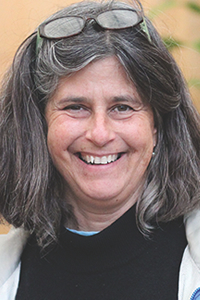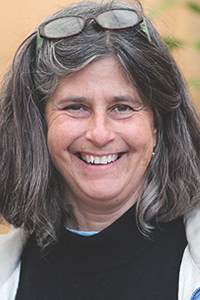
Sally Brown
BioCycle November/December 2019
The big talk at the pool this week was about the woman who broke the record and swam four laps of the English Channel. Not just Dover to Calais but there and back and then a whole other two laps. That falls into the category of a great achievement. There is no way, even if I were decades younger, that achieving this swimming feat would ever have been an option for me. Faced with my inadequacy in the perspective of greatness, I had two options. I could give up completely, because I would never be great. Or I could get in the pool and feel pretty good about my 3,000 yards. I chose the latter.
I see this as a parallel to our efforts to be sustainable. Too often, both as individuals and as communities, we go for the first option. Confronted with the fact that we can’t be great, perfect, or solve all of the problems, we opt to give up and continue on as though we have nothing to contribute to this fight. This is not the appropriate response. Instead we should realize that being good is so much better than doing nothing. In fact, collective goodness can elevate us to achievements that qualify as great.
Elevation To Great
Plastic
Let me give some examples. Plastic is bad. We can all agree that plastic waste is a huge issue, polluting our oceans, sidewalks, fields and streams. There is plenty of stuff on the web about how to become plastic free. A plastic free individual would fall into that “great” category. Like doing 4 laps of the English Channel, it would also fall into the near impossible category. Plastics are ubiquitous in our society. One would have to be a zealot to completely avoid them.
I am not great in terms of my use of plastic. I am also not terrible. Most times I bring my own reusable bag to the grocery store. We wash out and reuse our Ziplock storage bags. Milk is pretty much the only beverage we buy in single use plastic containers and we recycle those. When I do buy stuff in plastic (shampoos for example) I buy big bottles so I will need fewer of them. If everybody were as good as we are in terms of plastic, our problem with plastic would be cut by more than half. That qualifies as great.
Meat
Same deal with my diet. I am not a vegetarian or a vegan. A recent article in the New York Times talked about the environmental destructiveness of eating meat. I am not arguing against that claim. I am also not willing to completely give up meat and dairy. Instead of beating myself up about it and drowning my sorrows in a weekly rib eye, I’ve just reduced the amount of meat that I eat. A little pancetta (Italian bacon) goes a long way to season a dish. Chicken stock is not just the basis for chicken soup, but an excellent way to make a wide range of things taste great. And understanding cuisines of other cultures where beef has never been a daily staple is a terrific alternative.
With this, my meat consumption has been reduced lately by about 50 percent or more. When I do have that rib eye, boy is it delicious. This approach, just reducing your meat consumption has been around for a while. Meatless Mondays were invented long before LeBron James got the idea for Taco Tuesdays.
Home and Community Composting
This approach extends to communities as well. If you aren’t in the position to support an all-out food scrap diversion campaign with state of the art composting, it is a great start to provide classes and home composting bins to those who are interested. Community collection and composting is another terrific option. Make sure that these neighborhood operations have all that they need to succeed and over time, hopefully they will grow. This may not capture every moldy food scrap out there but it will be a whole lot better than not capturing any at all. It will also increase compost literacy across your community. When the day does come that you do opt to go full scale, you will already have gone a long way to have an educated citizenry. In turn, that educated citizenry will help to increase participation and reduce contamination and insure your program is successful.
Steps In The Right Direction
We have a world’s worth of problems and when taken in isolation, individual or community solutions can’t solve them. Does that mean that these individual or small-scale responses are bad? To the contrary, each is a step in the right direction. The more steps there are, the closer we get to achieving greatness.
What I do in Seattle may not change behavior across the globe but it has the potential to impact my neighbors and friends. For example, my buddy at the bank is now making sure that she takes the stickers off of her fruit before she places the discards in the organics bin. She may tell her friends and Seattle may serve as an example for other cities.
Enough good, small steps eventually add up to greatness. This is not the time to debate whether it is appropriate to do something good rather than wait for the perfect solution. It is not appropriate to condone inaction because of limited impact of individual actions. And if you don’t believe in the power of individual actions, perhaps you should look up ‘Greta Thunberg’. I’ll give you a hint — she’s the 16 year old from Sweden who is working wonders on increasing awareness on Climate change.
Sally Brown is a Research Professor in the College of the Environment at the University of Washington. She authors the Connections Column in BioCycle, and is a member of BioCycle’s Editorial Advisory Board.












